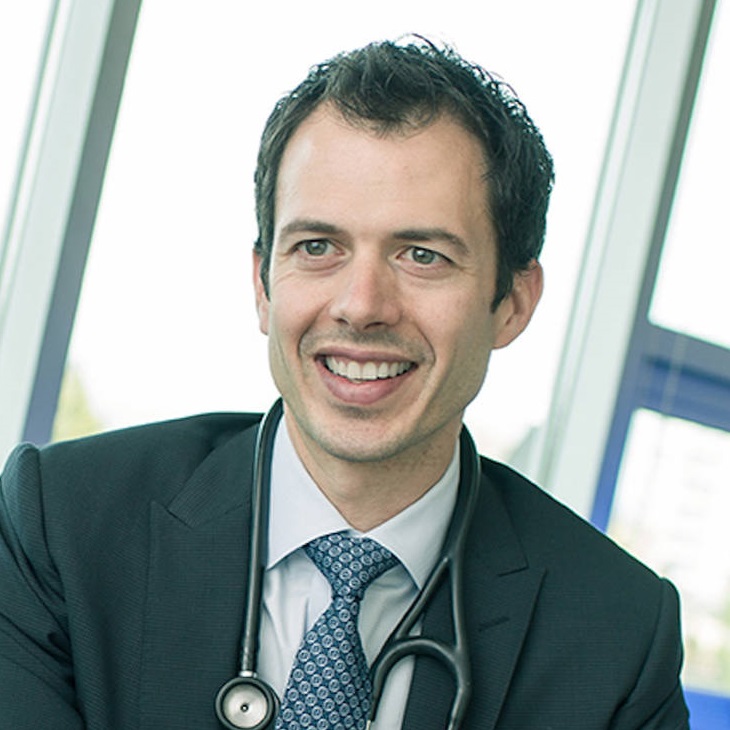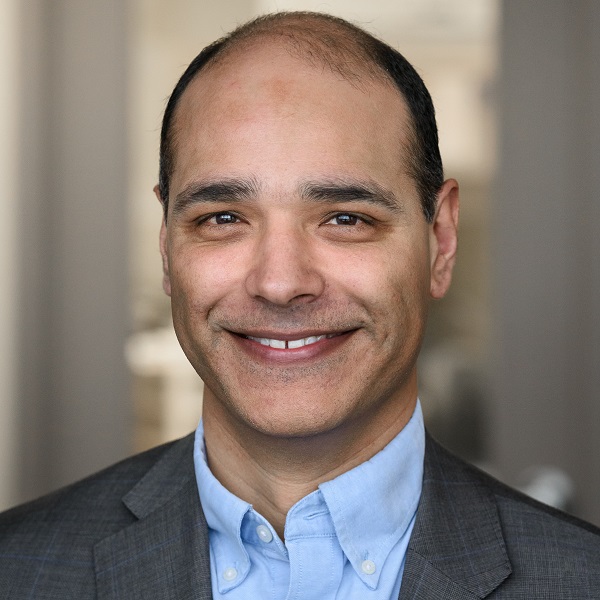RESEARCHERS (M-Z)
Brian MacVicar
Professor, University of British Columbia
Collaborator
Dr. MacVicar is the Co-Director of the Djavad Mowafaghian Centre for Brain Health at the University of British Columbia. He holds the Canada Research Chair in Neuroscience at UBC and is Professor and Head, Basic Neuroscience, in the Department of Psychiatry.
Dr. MacVicar’s research has focused on the mechanisms required to maintain a healthy brain by finding ways to prevent neuronal damage. His work has provided new insights into potential targets for preventing brain damage via neuronal death during stroke.
Dr. MacVicar has been a leader in the development and application of advanced brain imaging techniques during his career. He discovered that brain tissue is more transparent in infrared wavelengths, which are used widely to visualize nerve cells in intact brain tissue. With Image Science, a company he founded, he developed software that was widely used to control scientific image acquisition equipment and imaging analysis. The MacVicar lab has implemented two-photon microscopy and uncaging techniques to investigate and visualize complex interactions in the brain. The application of advanced imaging techniques has allowed his lab to make significant contributions to our understanding of how neuronal activity is regulated and how to protect nerve cells during stroke.
Dr. MacVicar is a Fellow of The Royal Society of Canada (FRSC) and of The Canadian Academy for Health Sciences (FCAHS).

NMIN project involvement:
Collaborator: GeneCure: Application of Lipid Nanoparticle Technology to Gene Therapies in a Variety of Tissues
Djavad Mowafaghian Centre for Brain Health
4th Floor, 2215 Wesbrook Mall
Vancouver BC, V6T 2B5
Tel: 604-822-7797
brian.macvicar@ubc.ca
Website
Anne Marinier
Associate Professor, Université de Montréal
Collaborator
Dr. Marinier is an Associate Professor in the Department of Chemistry at the Université de Montréal, and Principal Investigator and Director of Medicinal Chemistry at the Institute for Research in Immunology and Cancer (IRIC).
Dr. Marinier and her group focus on medicinal chemistry. They work to design and synthesize new chemical entities with proven biological and therapeutic activity in the treatment of cancer and other related diseases.
Trained as a Chemist, Dr. Marinier earned her Ph.D. in Synthetic Organic Chemistry at the Université de Sherbrooke in 1990 after working under the guidance of Pierre Deslongchamps. She then joined Garland Marshall’s team at Washington University School of Medicine, in St. Louis, for a postdoctoral fellowship.
She was hired by pharmaceutical company Bristol-Myers Squibb in 1991. There she worked on developing new anti-infective, anti-inflammatory and anti-tumor drugs. She joined IRIC in 2007 and contributed to the creation of what would become the country’s largest medicinal chemistry core facility in a university setting.

NMIN project involvement:
Collaborator: Neutrophil encapsulation platform for targeted drug delivery
2950 Chemin de Polytechnique
Montreal, Quebec H3T 1J4
Tel: 514-343-6111 ext. 17351
anne.marinier@umontreal.ca
Website
John Marshall
Professor, University of Toronto
Collaborator
Dr. Marshall is a Professor of Surgery at the University of Toronto, an intensivist at St. Michael’s Hospital, and a Senior Investigator in the Keenan Research Centre for Biomedical Science.
His laboratory studies the cellular mechanisms underlying prolonged neutrophil survival in trauma and sepsis. As a clinical investigator he has been the principle investigator of the AATICC trial of empiric antibiotic therapy for suspected ICU-acquired infection and of the CHAT trial of adjuvant therapy for H1N1 influenza, as well as a co-investigator on a number of Trials Group programs. He has also been a steering committee member for a number of industry-sponsored trials of novel therapies for sepsis.
He is the founding chair of the International Forum of Acute Care Trialists (InFACT) – a global network of 37 investigator-led critical care clinical research groups and vice-chair of the International Severe Acute Respiratory and Emerging Infections Consortium.
He has given more than 1000 invited lectures at more than 500 meetings around the world, has published more than 475 manuscripts and book chapters, has been cited more than 100,000 times, and is an Associate Editor of the journals Critical Care Medicine and Critical Care.
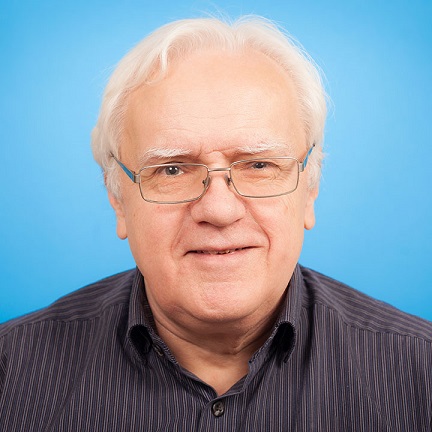
NMIN project involvement:
Collaborator: Neutrophil encapsulation platform for targeted drug delivery
Room 4-007, 30 Bond St
Toronto, ON, M5B 1W8
Tel: 416-864-5225
marshallj@smh.ca
Website
Anton McCaffrey
Sr. Director, TriLink BioTechnologies
Collaborator
Dr. McCaffrey is Senior Director of Emerging Science and Innovation at TriLink BioTechnologies.
Dr. McCaffrey is a researcher in the area of nucleic acid therapeutics and diagnostics, with expertise in design, manufacturing and purification of messenger RNA (mRNA) at gram scales for gene therapy applications, RNA interference, zinc-finger nucleases, TALENs, CRISPR and microRNAs. He has over 25 years experience designing nucleic acid-based therapeutics. His research interests include scalable mRNA manufacturing processes, chemical modification of mRNA to reduce innate immune stimulation, and development of specialized assays for mRNA characterization.
Michel Meunier
Professor, Polytechnique Montréal
Researcher
Dr. Michel Meunier is a professor in the Department of Engineering Physics and the head of the Laser Processing and Plasmonics Laboratory, at Polytechnique Montréal.
Dr. Meunier’s team has developed a new approach to synthesis of gold-silver alloy nanomaterials, with fine control of their composition and size, and is working on the development of novel medical imaging techniques. Dr. Meunier has perfected a technique for detection of cell-surface biomarkers that is a cost-efficient improvement over the classic immunofluorescence method: 3D multiplexed immunoplasmonics microscopy, which uses Abs-functionalized plasmonic nanoparticles (fNPs) as “headhunters” to target biomarkers, with reflected light microscopy (RLM) used to detect the biomarkers visually.
Dr. Meunier is also developing tools for cancer treatment, drug delivery, and nanosurgery, such as the “light nanoscalpel” which is aimed at functionalized plasmonic nanoparticles that concentrate its light to perforate the membrane.
Recently, Dr. Meunier designed a procedure for optimized, controlled design (material, shape and size) of metallic nanoparticles to improve nanosurgery performance.
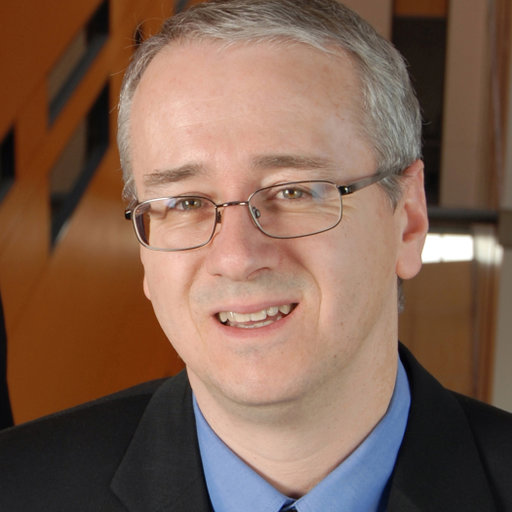
NMIN project involvement:
PI: Site-specific laser-mediated gene therapy for corneal endothelial diseases
Co-PI: Triggered release of anticancer drugs from LNP systems
Collaborator: GeneCure: Application of Lipid Nanoparticle Technology to Gene Therapies in a Variety of Tissues
Collaborator: NanoCore: Translational NanoMedicine Formulation and Characterization Core Facility
michel.meunier@polymtl.ca
Website
Robert Molday
Professor, University of British Columbia
Collaborator
Dr. Molday is a Professor of Biochemistry and Molecular Biology and of Ophthalmology and Visual Sciences, a
Canada Research Chair in Vision & Macular Degeneration, Director of the Centre for Macular Research, and Senior Member of the Brain Research Centre at the University of British Columbia.
He has elucidated the molecular and cellular mechanisms underlying a number of retinal diseases including X-linked retinoschisis, retinitis pigmentosa, Stargardt macular degeneration, and Lebers Congenital Amaurosis. He has used this information to develop therapeutic treatments for a number diseases in animal models for retinal diseases. These include gene and drug based therapies.
Research in his laboratory is currently directed toward identifying and characterizing vertebrate retinal photoreceptor proteins and elucidating their role in: phototransduction and other signaling pathways; rod and cone photoreceptor cell structure and morphogenesis; lipid transport across membranes; protein and vesicle trafficking; and inherited retinal degenerative diseases which are a leading cause of blindness in the world. His lab is also involved in drug discovery and gene therapy as potential therapeutic treatments for inherited retinal degenerative diseases including macular degeneration and retinitis pigmentosa.

NMIN project involvement:
Collaborator: GeneCure: Application of lipid nanoparticle technology to gene therapies in a variety of tissues
2350 Health Sciences Centre
The University of British Columbia
Vancouver, BC V6T 1Z3
Tel: 604–822–6173
molday@mail.ubc.ca
Website
Neeloffer Mookherjee
Associate Professor, University of Manitoba
Researcher
Dr. Mookherjee is an Associate Professor at The University of Manitoba, Canada, within the departments of Internal Medicine and Immunology, and the section of Proteomics and Systems Biology.
Dr. Mookherjee’s research program is focused on understanding the molecular mechanisms underlying chronic inflammation. Her research group seeks to understand the role of cationic host defence peptides (also known as antimicrobial peptides) in the biological process of inflammation and innate immunity.
Her research group employs various Systems Biology approaches to interrogate the regulatory mechanisms underlying the bioactivity of these peptides. She is also pursuing the use of small cationic peptides as an immunomodulatory therapy for chronic inflammatory diseases such as arthritis and asthma.
She is also involved in a collaborative initiative to define molecular changes in human lung and blood following inhaled exposure to environmental air pollutants such as diesel exhaust.
Dr. Mookherjee is current Chair of WISDOM (Women In Science: Development, Outreach & Mentoring),
a Rady Faculty of Health Sciences instituted initiative at The University of Manitoba.

NMIN project involvement:
Co-Investigator: Nanoparticle formulations for anti-inflammatory IDR peptides
799 JBRC, 715 McDermot Ave.
Winnipeg, MB R3E 3P4
Tel: 204-789-3835
neeloffer.mookherjee@umanitoba.ca
Website
Brad Nelson
Professor, University of Victoria
Researcher
Dr. Nelson is Distinguished Scientist and Director of the Deeley Research Centre at the BC Cancer Agency, Scientific Co-Director of BC Cancer's Immunotherapy Program, Professor of Biochemistry/Microbiology at the University of Victoria, and Professor of Medical Genetics at the University of British Columbia.
Dr. Nelson became founding Director of the Deeley Research Centre in 2003. His laboratory is pursuing the development of innovative immunotherapies for cancer. Areas of focus include: understanding how tumour-reactive T cells and B cells promote survival of cancer patients; using genomic and bioinformatic methods to decipher the barriers to effective immunotherapy; and using the power of genetic engineering to create more precise and potent immune cells for use in immunotherapy.

NMIN project involvement:
BC Cancer – Victoria
2410 Lee Avenue, 3rd Floor
Victoria, BC, V8R 6V5
Tel: 250-519-5705
bnelson@bccrc.ca
Website
Timothy Nichols
Professor, University of North Carolina
Collaborator
Dr. Nichols is a Professor of Medicine and Pathology in the Division of Cardiology, and Director of the Francis Owen Blood Research Laboratory at the University of North Caroina - Chapel Hill.
As an internationally recognized clinical investigator, Dr. Nichols’ current research focuses on improving treatments for patients with inherited bleeding disorders. His expertise in vascular biology research focuses on the role of von Willebrand factor in arterial thrombosis.
Dr. Nichols also has an active hemostasis research program to develop new therapies for hemophilia A and hemophilia B, especially those complicated by inhibitory antibodies (anti-drug antibodies).
Dr. Nichols’ other special interests include coronary artery disease and thrombosis, cardiac catheterization, coronary angioplasty, and novel ultrasound imaging techniques.
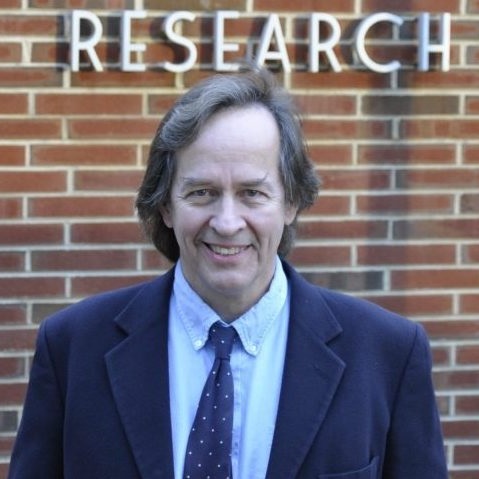
NMIN project involvement:
Collaborator: Developing a Long-Acting Prophylactic Treatment for Hemophilia using siRNA-Mediated Inhibition of Fibrinolysis
Mark Nitz
Professor, University of Toronto
Researcher
Dr. Nitz is a professor of Chemistry at the University of Toronto. His research focuses on using organic synthesis coupled with the power of biocatalysis and state of the art biophysical techniques such as fluorescence, NMR, mass spectrometry, and microcalorimetry, to creatively assemble new tools for studying biology.
His current research is in the area of glycosaminoglycan (GAG) chemistry and biology. By understanding the underlying biology and learning new techniques to synthesize and manipulate this interesting class of natural products, his lab hopes to learn new ways of intervening in a wide variety of human diseases.
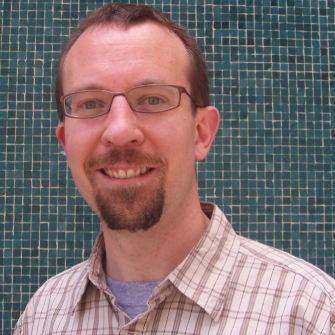
NMIN project involvement:
80 St. George Street
Toronto, ON, M5S 3H6
Tel: 416-946-0640
mnitz@chem.utoronto.ca
Website
Keith Pardee
Assistant Professor, University of Toronto
Researcher
Dr. Pardee is Assistant Professor at the Leslie Dan Faculty of Pharmacy and Canadian Research Chair (tier II) in Synthetic Biology and Human Health at the University of Toronto.
Dr. Pardee's research focuses on moving synthetic biology outside of the cell. His research program combines biochemistry, molecular engineering, and electronics to create a new class of sterile and abiotic tools for applications both in and outside the lab. By generating in vitro synthetic biology programs and creating in vitro environments to host these biomolecular programs, he aims to produce small, programmable sensors and devices for research, portable diagnostics, implantable therapeutics, and tools for regenerative medicine and tissue engineering.
Dr. Pardee’s research has been published in Cell, Nature, PLoS Biology, and Genes and Development, among other journals.

NMIN project involvement:
PI: On-Demand Biofunctionalization of Lipid Nanoparticles for CAR T Cell Therapy
Website
Joel Pedersen
Professor, University of Wisconsin-Madison
Collaborator
Dr. Joel Pedersen is a Vilas Distinguished Professor at University of Wisconsin - Madison. His research program focuses primarily on the environmental chemistry of emerging contaminants, emphasizing interfacial processes governing the sorption, transformation, and bioavailability of organic contaminants, biomacromolecules, and nanomaterials in natural and engineered systems.
His current research topics include defining and mitigating risks associated with water reuse, processes governing the environmental transmission of prion diseases, and molecular-scale interactions of biomolecules with engineered nanomaterials.

NMIN project involvement:
Collaborator: Single-particle measurements to enable rational design of lipid nanoparticle carriers for gene therapies and vaccines
Victor Rafuse
Professor, Dalhousie University
Collaborator
Dr. Rafuse seeks to adapt what we know about the developing nervous system to help treat neurodegenerative diseases and conditions such as spinal cord injury, ALS, and Parkinson’s disease. Using molecular biology, electrophysiology and standard anatomical immunohistochemistry (as well as in vitro and in vivo techniques), Dr. Rafuse is working towards understanding how motor axons grow and form stable synapses during development and following nerve injury.
Dr. Rafuse is well known for engineering adult human stem cells into functional motor neurons, for use in drug-screening models and potential future therapies for ALS. He and his team were also able to induce the axons of motor neurons to make appropriate nerve-to-muscle connections after a peripheral nerve injury.
Dr. Rafuse is also working on a gene therapy to help people with ALS breathe more easily, and launching new projects to explore the relationship between metabolism and ALS.
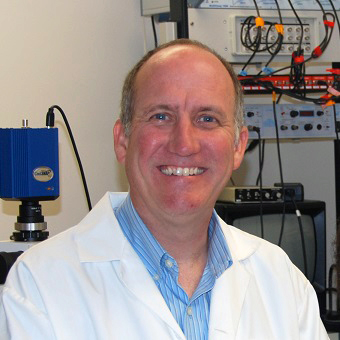
NMIN project involvement:
Collaborator: GeneCure: Application of Lipid Nanoparticle Technology to Gene Therapies in a Variety of Tissues
Neural Development & Plasticity Laboratory
3rd floor, Life Science Research Institute
1348 Summer Street
Halifax, NS B3H 1X5
Tel: 902-494-3609
victor.rafuse@dal.ca
Website
Arun Raturi
CSO, Entos Pharmaceuticals
Collaborator
Dr. Raturi is Chief Scientific Officer at at Entos Pharmaceuticals. He leads the development of the Entos Fusogenix platform. He has considerable experience in the development and characterization of pharmaceutics and biologics, with more than 6 years of industry experience in various roles.
His expertise is in the use of nanoparticle-based novel platforms for the targeted delivery of genes, small molecules and bio-therapeutics for cancer therapy and anti-aging. Specifically, he specializes in targeted in-vivo delivery of non-toxic liposomal formulations of miRNA, mRNA, SiRNA, DNA and crisper.
Dr. Raturi trained at The Scripps Research Institute in La Jolla, CA, and holds a Ph.D. in biochemistry from the University of Windsor.

NMIN project involvement:
Collaborator: Development of a targeted FAST-LNP formulation of cabazitaxel to improve efficacy and safety for prostate cancer treatment
Thomas Redelmeier
Founder, CEO & President, Cuprous Pharmaceuticals
Researcher
Dr. Redelmeier has more than 30 years of experience studying lipid nanoparticle systems including 20 years at Transferra where he was involved with more than 30 programs that were in preclinical and/or clinical development. He completed his PhD studies at the University of British Columbia, working with Dr. Pieter Cullis. He is the author of more than 25 peer reviewed papers, and has co-authored a book on Percutaneous Absorption.
Dr. Redelmeier was previously President & CEO of Transferra Nanosciences (formerly known as Northern Lipids). He led the company for 20 years, transforming it into a leader in the provision of Contract Research/Manufacturing services specifically related to lipid nanoparticle formulations of active pharmaceutical ingredients. The company was sold to EVONIK in 2016, where it continues to be active in this area.

NMIN project involvement:
Gregor Reid
Associate Professor, University of British Columbia
Collaborator
Dr. Reid is an investigator in the Michael Cuccione Childhood Cancer Research Program of BC Children's Hospital; a scientist in the Michael Cuccione Childhood Cancer Research Program; and an Associate Professor in the Division of Hematology, Oncology and BMT, within the Department of Pediatrics, Faculty of Medicine, at The University of British Columbia.
The central idea of Dr. Ried's research is that appropriate stimulation of the immune system will provide an effective strategy for the treatment and prevention of childhood cancers. His research seeks to understand the influence of the immune system during cancer progression and to use this knowledge to develop approaches to induce therapeutic anti-cancer immune activity.
To achieve these goals his team uses a range of experimental systems, including transgenic mice, adoptive transfer models, human xenograft models, and ex vivo and in vitro analysis of patient samples and human cell lines.
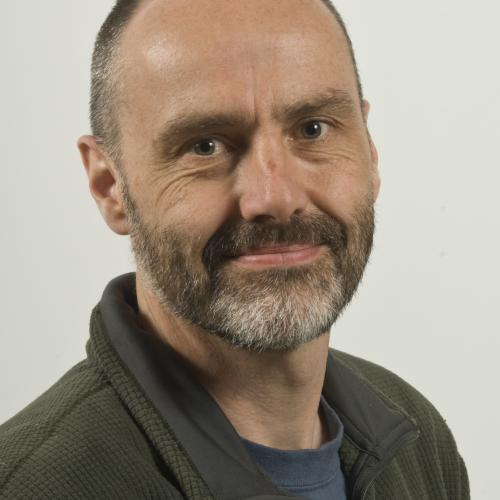
NMIN project involvement:
Collaborator: Lipid Nanoparticle-mediated Immunotherapy for Pseudomyxoma Peritonei
Raymond Reilly
Professor, The University of Toronto
Researcher
Dr. Reilly’s research focuses on developing novel radiopharmaceutical agents to detect and treat cancer. His work involves discovery, preclinical development and clinical translation of these agents for molecular imaging or molecularly targeted radiotherapy of cancer.
Dr. Reilly’s research group develops and studies the use of novel radiopharmaceutical probes that target proteins overexpressed on tumour cells to aid in cancer diagnosis, imaging and treatment.
Dr. Reilly’s group investigates monoclonal antibodies labeled with radioisotopes for imaging and treatment of cancer, and is also studying the use of radiolabelled gold nanoparticles for locally treating tumours with radiation. In one unique approach, the antibodies or nanoparticles are designed to enter tumour cells and deliver a short range radiation called Auger electrons inside the cell rather than from the outside, reducing the toxicity to nearby healthy tissues.
Prof. Reilly’s group aims to translate their most successful imaging and radiotherapeutic agents to clinical trials. They evaluate the agents preclinically using animal tumour models and develop pharmaceutical quality formulations of the agents that are ready to test in phase I clinical trials.
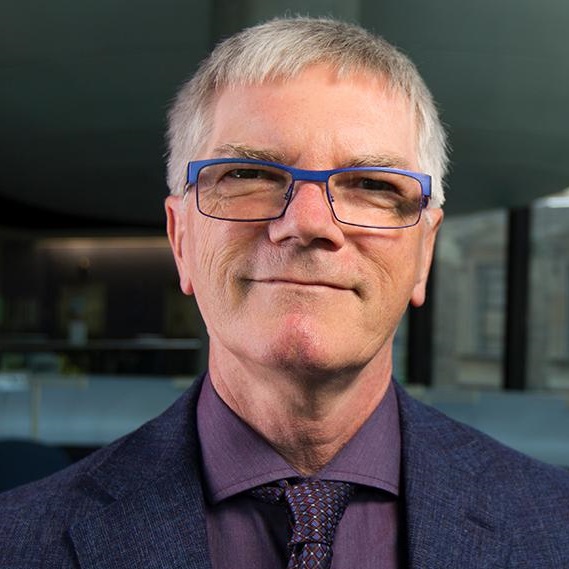
NMIN project involvement:
Co-Investigator: Customisable metallo-nanotexaphyrins for cancer imaging and therapy
Leslie Dan Faculty of Pharmacy
University of Toronto
144 College Street
Toronto ON M5S 3M2
Tel: 416-946-5522
raymond.reilly@utoronto.ca
Website
Daniel Renouf
Medical Oncologist, BC Cancer
Researcher
Dr. Renouf is a medical oncologist at the British Columbia Cancer Agency, Vancouver Centre, and an Assistant Professor at the University of British Columbia, Department of Medicine.
He received his Doctor of Medicine from the University of Alberta and completed his internal medicine and medical oncology training at the University of British Columbia and British Columbia Cancer Agency. He undertook further training in early drug development and gastrointestinal oncology at Princess Margaret Hospital and the University of Toronto, and obtained a Masters of Public Health from Harvard University.
Dr. Renouf’s research interests include developmental therapeutics, genomics, and biomarker development within gastrointestinal cancers, with a focus on pancreatic cancer.
He is the leader of the BC Cancer Agency Phase I program, the Co-Director of Pancreas Centre BC and is the Co-chair of the NCIC pancreatic cancer disease group.
Colin Ross
Associate Professor, The University of British Columbia
Researcher
Dr. Colin Ross is Associate Professor in the Faculty of Pharmaceutical Sciences at the University of British Columbia, and a Scientist at BC Children’s Hospital.
Dr. Ross’s expertise spans pharmacogenetics, genomics, drug development, drug safety, adverse drug reactions, predictive genetics, and genetic/clinical factors of drug response. Ross Lab researchers investigate the genetic basis of disease and severe adverse drug reactions using genomics-guided precision medicine approaches to help make drugs safer, improve disease diagnosis, and develop new, targeted therapeutics.
Dr. Ross’s research capitalizes upon national and international collaborations with clinicians, researchers and industry partners. He was instrumental in the establishment of the Canadian Pharmacogenomics Network for Drug Safety (CPNDS), a nation-wide collaborative network of researchers. He currently holds a leadership role on the network’s executive steering committee.

NMIN project involvement:
Collaborator: GeneCure: Application of Lipid Nanoparticle Technology to Gene Therapies in a Variety of Tissues
Collaborator: NanoCore: Translational NanoMedicine Formulation and Characterization Core Facility
2405 Wesbrook Mall
Vancouver, BC Canada V6T 1Z3
Tel: 604-827-2017
colin.ross@ubc.ca
Website
Fabio Rossi
Professor, The University of British Columbia
Researcher
Dr. Fabio Rossi is Professor in the Department of Medical Genetics at the University of British Columbia (UBC), Director of the UBC Biomedical Research Centre, and a Board member of the NCE Stem Cell Network.
Dr. Rossi's research focuses on stem cells, regeneration, gene therapy, and control of cell fate. He has provided seminal contributions to multiple fields related to the role of inflammation and mesenchymal progenitors in adult tissue regeneration and pathogenesis. His laboratory was the first to show that microglia (CNS-resident macrophages) are self-renewing locally and do not originate form bone marrow. He also described a dramatic and unexpected positive trophic role of tissue resident mesenchymal progenitors in tissue regeneration, starting a novel and very active new field investigating these cells.
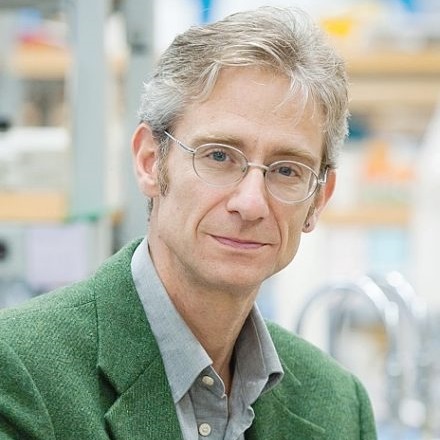
NMIN project involvement:
PI: Targeting myeloid leukemia with nanomedicines
Collaborator: GeneCure: Application of Lipid Nanoparticle Technology to Gene Therapies in a Variety of Tissues
Collaborator: A multiomics screen to identify phagocyte-specific LNPs for immunotherapy
UBC Campus
2222 Health Sciences Mall
Vancouver, BC V6T 1Z3
Tel: 604–822–7138
fabio@brc.ubc.ca
Website
Manish Sadarangani
Director, Vaccine Evaluation Center & Assistant Professor, UBC
Collaborator
Dr. Sadarangani is director of the Vaccine Evaluation Center at the BC Children’s Hospital Research Institute and assistant professor in the Division of Infectious Diseases, UBC Department of Pediatrics. He completed his Doctor of Philosophy with the Oxford Vaccine Group in the UK, developing novel vaccine candidates for protection against capsular group B meningococcal disease, and completed a Fellowship in Pediatric Infectious Diseases in Vancouver in 2013 before returning to Oxford to work as a Pediatric Infectious Diseases physician. He has worked in pediatrics throughout the world, including in sub-Saharan Africa, Asia, Australia, North America and Europe.
Dr. Sadarangani’s research links clinical trials with basic microbiology, immunology and epidemiology to address clinically relevant problems related to immunization and vaccine-preventable diseases. Specific research interests include meningococcal disease, bacterial vaccines, understanding vaccine-induced immunity via systems biology, meningitis and encephalitis, maternal immunization, the microbiota and antibiotic resistance.Ramona Salvarinova
Clinical Assistant Professor, The University of British Columbia
Researcher
Dr. Salvarinova is a Clinical Assistant Professor in the Divison of Biochemical Diseases of the Department of Pediatrics, within the Faculty of Medicine at the University of British Columbia.
She works as a full-time physician with the Division of Biochemical Diseases at BC Children’s Hospital and provides care for pediatric patients diagnosed with inborn errors of the metabolism, as well as pediatric metabolic consultative services within British Columbia. She has interest in innovative treatments for patients with rare diseases and is investigator or co-investigator in several clinical trials.
Dr. Salvarinova is a fellow with the Royal College of Physicians and Surgeons of Canada and the Canadian College of Medical Geneticists.

Przemyslaw (Mike) Sapieha
Associate Professor, University of Montreal
Researcher
Dr. Sapieha is the director of the Neurovascular Eye Disease Lab at the Maisonneuve-Rosemont Hospital Research Centre and holds the Wolfe Professorship in translational vision research and a Canada Research Chair in retinal cell biology. He is an associate professor in the departments of Ophthalmology and Biochemistry at the University of Montreal and an adjunct professor of Neurology and Neurosurgery at McGill University. He is also the Founder and Chief Scientific Officer of SemaThera Inc.
His research team has made impactful discoveries about the mechanisms underlying age and diabetes-related loss of vision, implicating deregulation of neuronal metabolism and cellular senescence in retinal vascular diseases such as diabetic retinopathy; notably, they identified roles for guidance cues such as Semaphorins and Netrins in these diseases.
Dr. Sapieha’s important contributions to the understanding of the mechanisms underlying retinal disease have led to new avenues of treatment to prevent blindness and made him a leader in his field.
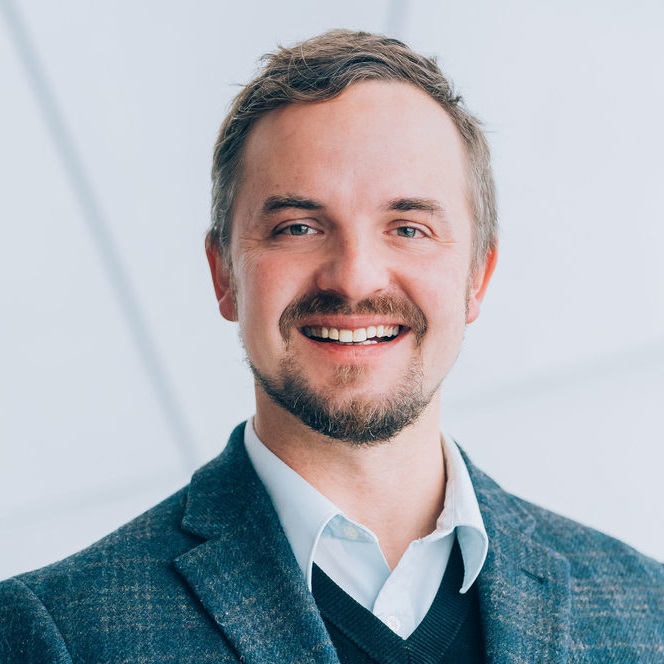
NMIN project involvement:
Co-Investigator: Site-specific laser-mediated gene therapy for corneal endothelial diseases
PO Box 6128, Centre-ville Station
Montréal, Québec H3C 3J7
Tel: 514-252-3400 ext 7711
mike.sapieha@umontreal.ca
Website
Edward Sargent
Professor, University of Toronto
Collaborator
Dr. Sargent is University Professor in the Edward S. Rogers Sr. Department of Electrical and Computer Engineering at the University of Toronto. He holds the Canada Research Chair in Nanotechnology and also serves as Vice President - International. He is founder and CTO of InVisage Technologies Inc. of Menlo Park, and a co-founder of Xagenic Inc. of Toronto.
Professor Sargent’s research interests cover many areas of nanotechnology and its application to communications and computing, medicine, and tapping new energy sources.His research has been cited more than 16,000 times and has been disseminated in Nature, Science, Nature Materials, Nature Nanotechnology, Nature Chemistry and Nature Photonics. His book The Dance of Molecules: How Nanotechnology is Changing Our Lives (Penguin) was published in Canada and the United States in 2005 and has been translated into French, Spanish, Italian, Korean, and Arabic.
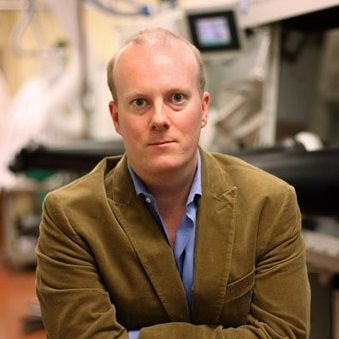
NMIN project involvement:
Collaborator: Development of an integrated chip for exosome analysis in cancer
10 King’s College Road
Toronto, Ontario M5S 3G4
Tel: 416-946-5051
ted.sargent@utoronto.ca
Website
Molly Shoichet
Professor, The University of British Columbia
Collaborator
Dr. Shoichet is an expert in the study of polymers for drug delivery and tissue regeneration. She holds the Tier 1 Canada Research Chair in Tissue Engineering and is Professor of Chemical Engineering & Applied Chemistry and Biomaterials & Biomedical Engineering at the University of Toronto.
Dr. Shoichet aims to advance the basic science and enabling technologies of tissue engineering and drug delivery. She is a world leader in the areas of polymer synthesis, biomaterials design and drug delivery in the nervous system. Her research program is unique in its breadth, focusing on strategies to promote tissue repair after traumatic spinal cord injury, stroke and blindness and enhance both tumour targeting through innovative strategies and drug screening via 3D cell culture with new hydrogel design strategies.
Dr. Shoichet has founded three spin-off companies and is actively engaged in translational research with several industry partners and in science outreach.She is currently Senior Advisor on Science & Engineering Engagement at U of T and serves on the Board of the Ontario Science Centre.
Dr. Shoichet is the recipient of 44 prestigious national and international awards. She is the only person ever to be inducted into all three of Canada’s National Academies. In 2011, Dr. Shoichet was appointed to the Order of Ontario, Ontario’s highest civilian honour. In 2013, her contributions to Canada’s innovation agenda and the advancement of knowledge were recognized with the QEII Diamond Jubilee Award.
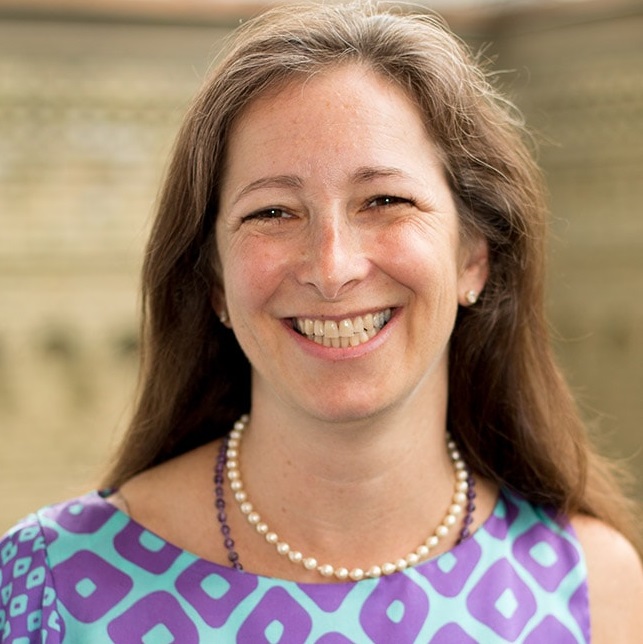
NMIN project involvement:
Collaborator: GeneCure: Application of lipid nanoparticle technology to gene therapies in a variety of tissues
160 College Street, Room 514
Toronto, Ontario M5S 3E1
Tel: 416-978-1460
molly.shoichet@utoronto.ca
Website
Elizabeth Simpson
Professor, The University of British Columbia
Collaborator
Dr. Simpson is a leading scientist in mammalian genetics and genomics. The overall goal of her research is to improve treatment for human disorders of the central nervous system, with a focus on brain and eye.
At the University of British Columbia, she is a Senior Scientist at the Centre for Molecular Medicine and Therapeutics (CMMT), a Professor in the Department of Medical Genetics, and an Associate Member in the Departments of Psychiatry and Ophthalmology & Visual Sciences. She is also an Investigator of the Centre for Brain Health and a Founding Fellow of the Institute of Mental Health. She currently serves as Director of the CMMT Mouse Animal Production Service.
Dr. Simpson is best known for her work on mouse models of human disease, and has identified a gene implicated in bipolar disorder (manic-depressive illness). Currently, she and her laboratory are working on the development of gene-based delivery of proteins; also known as “gene therapy”.
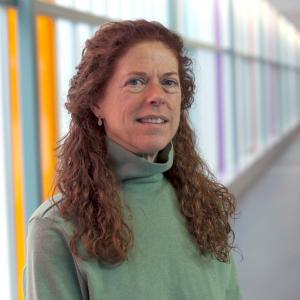
3020 – 950 West 28th Avenue
Vancouver, BC V5Z 4H4
Tel: 604-875-3850
simpson@cmmt.ubc.ca
Website
Shiela Singh
Professor, McMaster University
Collaborator
Dr. Singh is a professor of surgery and biochemistry, chief pediatric neurosurgeon at McMaster Children’s Hospital, prior Division Head of Neurosurgery at Hamilton Health Sciences, and scientist appointed to the Stem Cell and Cancer Research Institute at McMaster University. She holds a Tier 1/Senior Canada Research Chair in Human Brain Cancer Stem Cell Biology, and is Director of the McMaster Surgeon Scientist Program. She is also CEO and a co-founder of Empirica Therapeutics.
Dr. Singh’s lab applies a developmental neurobiology framework to the study of brain tumorigenesis. Building upon previous cell culture techniques developed for the isolation of normal neural stem cells (NSC) and applying them to brain tumours, and through development of a xenograft model to efficiently study brain tumour initiating cell (BTIC) activity, Dr. Singh’s lab aims to understand the molecular mechanisms that govern BTIC self-renewal. Dr. Singh is currently studying the regulation of BTIC signaling pathways in glioblastoma, brain metastases and childhood medulloblastoma, with an ultimate goal of selectively targeting the BTIC with appropriately tailored drug and molecular therapies.
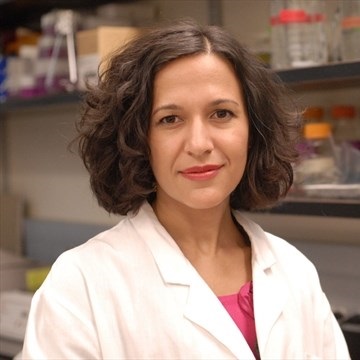
NMIN project involvement:
Collaborator: Neutrophil encapsulation platform for targeted drug delivery
McMaster University
1280 Main Street West
Hamilton, Ontario L8S 4L8
ssingh@mcmaster.ca
Website
Terrance Snutch
Professor, The University of British Columbia
Collaborator
Dr. Snutch is a Professor in the Department of Psychiatry, Faculty of Medicine, in the Department of Zoology, Faculty of Science, and in Michael Smith Laboratories at the University of British Columbia. He hold a Canada Research Chair in Biotechnology and Genomics-Neurobiology, and is Director of Translational Neuroscience in the Djavad Mowafaghian Centre for Brain Health.
His lab’s major research interest is the study of the molecular mechanisms of signal transduction in the nervous system and its relationship to neurological disorders. The research utilizes a multidisciplinary approach to characterize various aspects of the molecular, electrophysiological, pharmacological, biochemical and genetic properties of ion channels in normal and pathophysiological states.
His current projects involve epilepsy, migraine, schizophrenia, autism and chronic pain. The lab also employs state-of-the-art 3rd generation sequencing (MinION) aimed at defining genetic and epigenetic disease-related states. Dr. Snutch actively translates discoveries to industry and patients and to date, has designed and advanced new drugs for pain and epilepsy into the clinic.
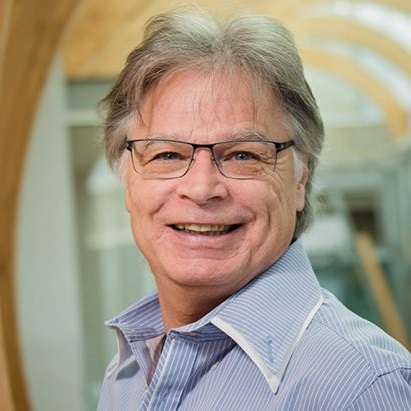
NMIN project involvement:
Collaborator: GeneCure: Application of lipid nanoparticle technology to gene therapies in a variety of tissues
Chris Tam
Co-Founder & CEO, Integrated Nanotherapeutics
Collaborator
Dr. Tam is co-founder of Integrated Nanotherapeutics. She obtained her B.Sc. in Biochemistry from McGill University and her Ph.D. in Cell Biology from the University of Alberta. She has extensive research experience in biochemistry, cell biology as well as drug design and development.
Prior to founding Integrated Nanotherapeutics, Dr. Tam worked at the Life Sciences Institute at the University of British Columbia, where she was part of the supervisory team for graduate and post-graduate scientists working on the development of lipid nanoparticles for the delivery of macromolecule drugs, such as siRNA and DNA, as well as small molecule drugs. Many of these lipid nanoparticle drug formulations have direct implication for the treatment of a wide range of diseases including cancers, hematological diseases, osteoporosis, autoimmune disorders and diabetes.
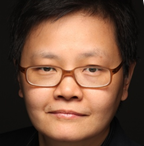
NMIN project involvement:
Collaborator: Targeting the NLRP3 inflammasome with lipid nanoparticles for the treatment of type 2 diabetes
Ryan Vander Werff
Services Manager, Biomedical Research Centre, UBC
Researcher
Ryan Vander Werff is Single-Cell & Next-Gen Sequencing and Services Manager for the BRC-Seq at the Biomedical Research Centre of the University of British Columbia.
He received both his BSc and MSc from the University of California, San Diego in Molecular and Cellular Biology. During that time, his research focus was on Cancer Biology, looking at the mechanistic site of action for PTHrP’s growth inhibitory effects on Non Small Cell Lung Cancer. He went on to work for private labs focused on therapeutics, drug delivery, and diagnostics and worked with high throughput screening, laboratory automation, micro-fluidics, analytics, and most recently, next generation sequencing. With Sequenom, in La Jolla California, he sequenced fetal DNA through methylation-based filtering of maternal blood samples, setting up new assays via Illumina`s next generation sequencing, laboratory automation, and other technologies.

NMIN project involvement:
Collaborator: A multiomics screen to identify phagocyte-specific LNPs for immunotherapy
Bruce Verchere
Professor, The University of British Columbia
Researcher
Dr. Bruce Verchere is Professor in the Departments of Pathology & Laboratory Medicine and Surgery at the University of British Columbia (UBC), head of the Diabetes Research Program at the Child & Family Research Institute (CFRI) at BC Children’s Hospital, and the Irving K Barber Chair in Diabetes Research.
Dr. Verchere's research focuses on the pancreatic islet and aims to understand how beta cell death and dysfunction arises in diabetes and following transplantation, with particular focus on islet amyloid and inflammation, with the goal of developing therapeutic approaches for enhancing beta cell survival and function in diabetes.
Dr. Verchere is chair of the CIHR Diabetes Obesity Lipid and Lipoprotein Disorders and JDRF Islet Biology & Transplantation Training and Innovative grant review panels, and a member of the national research council and national board of directors of the Canadian Diabetes Association. He has served on the editorial boards of Diabetes and the Canadian Journal of Diabetes and is currently on the editorial board of Endocrinology, and associate editor of the Bjournal Islets. In 2012, he received a Queen Elizabeth II Diamond Jubilee Medal for diabetes research and service.
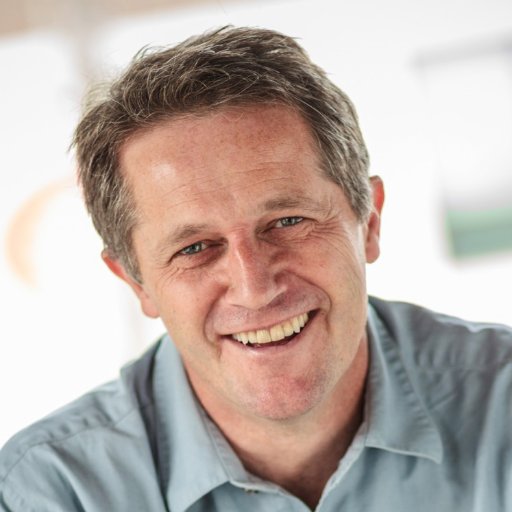
NMIN project involvement:
PI: Targeting the NLRP3 inflammasome with lipid nanoparticles for the treatment of type 2 diabetes
Gilbert Walker
Professor, University of Toronto
Scientific Director & CEO; Theme 3 Leader
Dr. Gilbert Walker is Professor of Chemistry at the University of Toronto and the Canada Research Chair (Tier 1) in Biointerfaces. Dr. Walker received his B.A in Chemistry and Mathematics from Bowdoin College in 1985, and his Ph.D from the University of Minnesota in 1991. In 1999, he joined the University of Pittsburgh as an assistant professor, and in 2005 became a Canada Research Chair Professor at the University of Toronto.
Dr. Walker works with polymers the size of one ten-thousandth of a human hair. He uses the unique ability of polymers to self-assemble, producing nanostructured materials with electromagnetic, mechanical, and physiological properties. His work in biomolecular interaction analysis is enabling more-timely cancer diagnosis and medical care and his aquatic polymer nanomaterials are being patented for greener aquaculture.
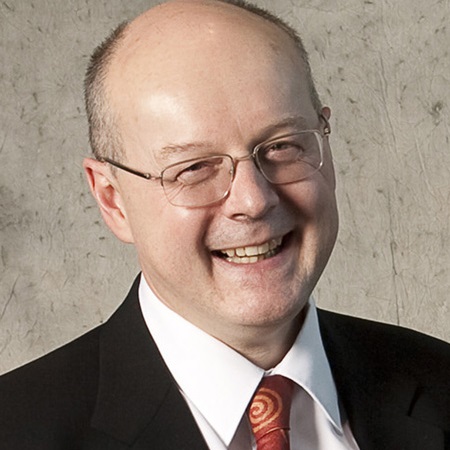
NMIN project involvement:
PI: NMIN Theme 3: Research & KTEE Accelerator Project
Collaborator: On-Demand Biofunctionalization of Lipid Nanoparticles for CAR T Cell Therapy
Collaborator: NanoCore: Translational NanoMedicine Formulation and Characterization Core Facility
University of Toronto
Toronto, ON
M5S 3H6
Tel: 416-946-8401 gwalker@chem.utoronto.ca Website
Chen Wang
Professor, University of Toronto
Collaborator
Dr. Wang is a hematopathologist and Head of the Division of Hematology, in the Department of Pathology and Laboratory Medicine of Mount Sinai Hospital. He is also an Associate Professor of Lab Medicine and Pathobiology at the University of Toronto.
His research is focused mainly on lymphocytic neoplasms. In collaboration with investigators at the University of Toronto, Dr. Wang developed Raman nanoparticles targeting leukemia cells and developed a flow cytometry method to assess this, and achieved triplex Raman nanoparticle labelling of leukemia cells.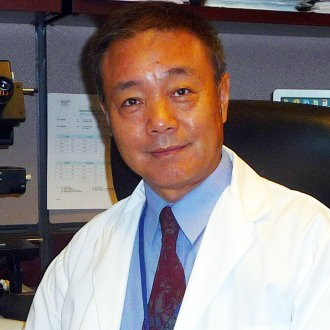
NMIN project involvement:
Mount Sinai Hospital
600 University Ave. Rm 602
Toronto ON M5G 1X5
Tel: 416-586-4469
Chen.Wang@sinaihealthsystem.ca
Website
Ellen Wasan
Assistant Professor, University of Saskatchewan
Researcher
Dr. Ellen K. Wasan, B.S.Pharm., RPh, PhD, is an Associate Professor in the College of Pharmacy and Nutrition at the University of Saskatchewan. She is part of the Drug Design and Delivery research cluster and teaches in the Doctor of Pharmacy program. She is currently Secretary of the Board for the Canada Chapter of the Controlled Release Society, a member of the Canadian Society for Pharmaceutical Sciences and is a practicing community pharmacist.
Dr. Wasan’s research is focused on lipid-based drug delivery for poorly water-soluble drugs and macromolecules. She has extensive experience with liposomal and self-assembling systems for delivery of small molecules and nucleic acids. Current projects include development of oral chitosan polymeric nanoparticles for sustained release of immunosuppressants, lipidic formulations of adjuvants for nasal administration of human and veterinary vaccines, and topical agents for Raynaud’s phenomenon.
Dr. Wasan was the 2013 winner of the Gattefossé Lipid Drug Delivery Award of the American Association of Pharmaceutical Scientists and the 2011 Applied Research Award from the British Columbia Institute of Technology.
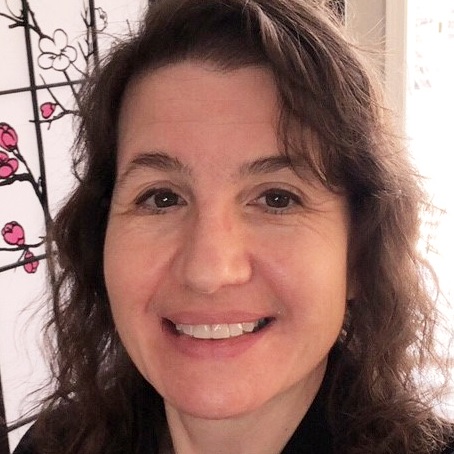
NMIN project involvement:
PI: Lipidic nanoparticle formulation of a triple adjuvant for intra-nasal vaccines for pertussis and influenza107 Wiggins Rd.
D-Wing Health Sciences 3D01-17
University of Saskatchewan
Saskatoon, SK
S7N 5E5
Tel: 306-966-3202
ellen.wasan@usask.ca
Website
Kishor Wasan
Adjunct Professor & Distinguished University Scholar, The University of British Columbia
Researcher
Dr. Wasan is Professor (retired) & former Dean at the University of Saskatchewan; a
Fellow Member of the Royal Society of Medicine (London, UK); and Adjunct Professor & Distinguished University Scholar in the Faculty of Medicine at the University of British Columbia (UBC). He is also Co-Founder & Co-Director of the Neglected Global Diseases Initiative at UBC.
His research interest is in in the area of lipid-based drug delivery and lipoprotein-drug interactions.
Dr. Wasan completed his Ph.D. at the University of Texas Medical Center's MD Anderson Cancer Center in Cellular and Molecular Pharmacology. He completed a postdoctoral fellowship in Cell Biology at the Cleveland Clinic and then joined the Faculty of Pharmaceutical Sciences at UBC until 2014.
Dr. Wasan has published over 200 peer-reviewed articles and 240 abstracts. He has received many awards and honours, including: a CIHR University-Industry Research Chair in Pharmaceutical Development (2003-2008); the title of University Distinguished Scholar (2004); an AAPS Award for Outstanding Research in Lipid-Based Drug Delivery (2007); an AFPC-Pfizer Research Career Award (2008); a CIHR/iCo Therapeutics Research Chair in Drug Delivery for Neglected Global Diseases (2009); induction into the Canadian Academy of Health Sciences (2010); and the Canadian Society of Pharmaceutical Sciences Leadership award for outstanding contributions to Pharmaceutical Sciences in Canada (2011).
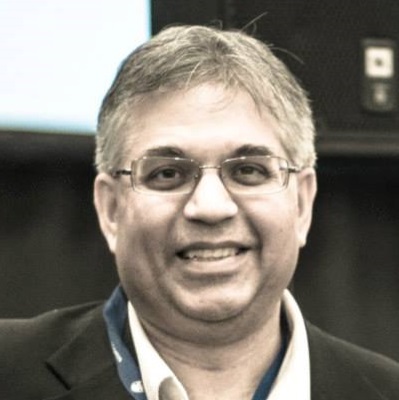
NMIN project involvement:
Co-Investigator: Lipidic nanoparticle formulation of a triple adjuvant for intranasal vaccines
Michael Weinfeld
Professor, University of Alberta
Researcher
Dr. Weinfeld is a Professor in the Division of Experimental Oncology in the Faculty of Medicine and Dentistry of the University of Alberta.
The focus of the research in his laboratory is the cellular response to chemical and radiation-induced stress. His team is particularly interested in DNA damage and repair, and cell death and survival.

NMIN project involvement:
Co-Investigator: Nano-delivery of novel inhibitors of DNA repair for enhanced therapy in head & neck cancer
Drew Weissman
Professor, University of Pennsylvania
Collaborator
Dr. Weissman is a Professor of Medicine in the Perelman School of Medicine of the University of Pennsylvania.
He is also an Attending Physician at the Philadelphia Veterans Administration Medical Center, a member of The American Association of Immunologists, and a member of the American Federation for Clinical Research.
His laboratory focuses on the study of RNA and innate immune system biology and the application of these findings to vaccine research and gene therapy. He is currently developing new vaccine platforms, therapeutic proteins, and gene editing systems using nucleoside modified RNAs.
Dr. Weissman co-discovered the ability of modified nucleosides in RNA to suppress activation of innate immune sensors and increase the translation of messenger RNA (mRNA).

NMIN project involvement:
Collaborator: COVID-19 Therapeutics
Aaron Wheeler
Professor, University of Toronto
Researcher
Dr. Wheeler is Professor and Canada Research Chair of Bioanalytical Chemistry in the Institute of Biomedical Engineering at the University of Toronto.
His research is focused on the development of "lab-on-a-chip" techniques for high throughput proteomics and drug discovery. The lab-on-a-chip concept promises reduced reagent consumption and analysis time, the capacity to integrate multiple functions onto a single device, and the potential for high throughput analysis. Two paradigms have emerged for lab-on-a-chip: microchannels and digital microfluidics. The former technique relies on enclosed, interconnecting, micron-dimension channels; the latter facilitates transport of discrete droplets of fluid across the surface of an array of electrodes. His lab is developing hybrid methods that rely on the unique advantages of microchannels and digital microfluidics for high-throughput bioanalytical applications.
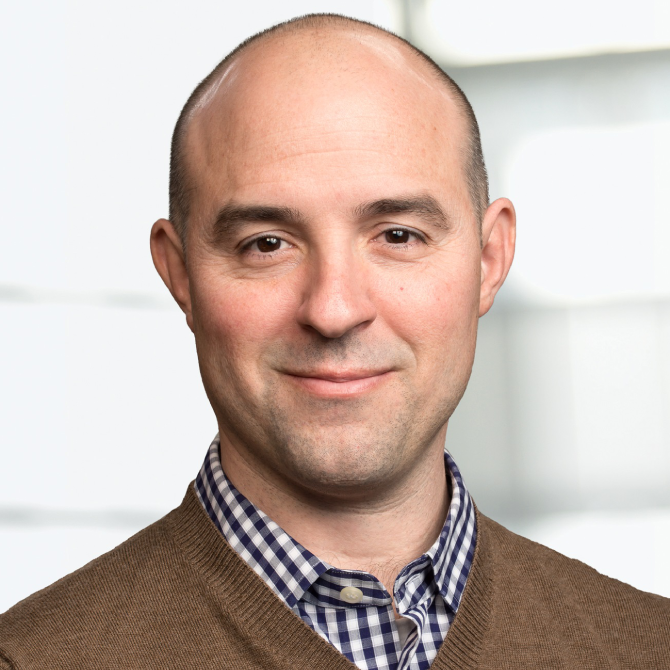
NMIN project involvement:
PI: An ultrasensitive digital nanoassay for immunotherapy effectiveness
Lorne Whitehead
Professor, University of British Columbia
Researcher
Dr. Whitehead is a professor in the Department of Physics and Astronomy at the University of British Columbia, and he serves as the university’s Special Adviser on Entrepreneurship, Innovation and Research.
Dr. Whitehead studies the optical, electrical, and mechanical properties of micro-structured surfaces, a field in which he holds more than one hundred US patents and numerous international counterpart patents. His technology is used in many computer screens and televisions.
In addition to CLEARink, Dr. Whitehead has also helped to start five new companies, commercializing technologies that he developed in his UBC laboratory – Sonigistix, Brightside (purchased by Dolby Laboratories in 2007), Boreal Genomics, SunCentral and ELIX Wireless.
Previously, he has held a number of other administrative positions including Associate Dean, Dean pro tem, VP Academic & Provost and Leader of Education Innovation. In these roles he has often applied organizational innovation methods to the improvement of teaching and learning.
Since joining the UBC faculty in 1994,he has received more than 100 patents for innovations in building illumination and displays for computers, television and cinema.

NMIN project involvement:
Co-PI: Triggered release of anticancer drugs from lipid nanoparticles
Vancouver Campus, UBC
325 – 6224 Agricultural Road
Vancouver, BC V6T 1Z1
Tel: 604-822-3075
Website
Dominik Witzigmann
Postdoctoral Fellow, The University of British Columbia
Researcher; Admin Lead, NanoCore
Dr. Witzigmann is a Postdoctoral Fellow at the University of British Columbia, is Administrative Lead for NMIN's NanoCore core facility, and currently serves on the board of the “Gene Delivery and Gene Editing Focus Group” of the Controlled Release Society (CRS).
Dr. Witzigmann's research is focused on targeted DNA therapeutics for the treatment of orphan monogenetic liver disorders and the development of lipid-based nanomedicines for the delivery of biomacromolecules. A key step in this development process is the investigation of nano-bio interactions at an organ and cellular level.
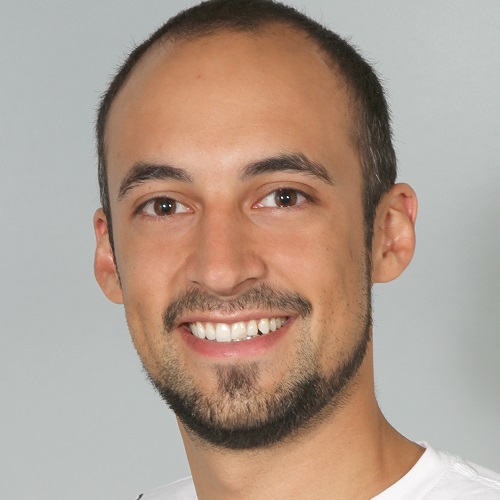
NMIN project involvement:
Collaborator: GeneCure: Application of lipid nanoparticle technology to gene therapies in a variety of tissues
Collaborator: A multiomics screen to identify phagocyte-specific LNPs for immunotherapy
Collaborator: NanoCore: The Translational NanoMedicines Formulation & Characterization Core Facility
Karla Williams
Assistant Professor, University of British Columbia
Collaborator
Dr. Williams is Canada Research Chair in Oncology and an Assistant Professor in the Faculty of Pharmaceutical Sciences at UBC.
Dr. Williams aims to improve our ability to treat metastatic disease, and to develop new ways to detect disease early and identify individuals at high risk for cancer spread. She and her research team are studying invadopodia: tiny feet-like structures formed by cancer cells that help the cells move and grow. Understanding the role of invadopodia in cancer progression will validate them as drug targets.
Dr. Williams and her team are also using blood-based biomarkers to accurately detect breast cancer and identify high-risk individuals. Developing a non-invasive test that can discriminate between patients with non-life-threatening (indolent) disease and aggressive disease could lead to effective treatments for high-risk individuals while sparing those with indolent disease the toxic side effects of treatment.
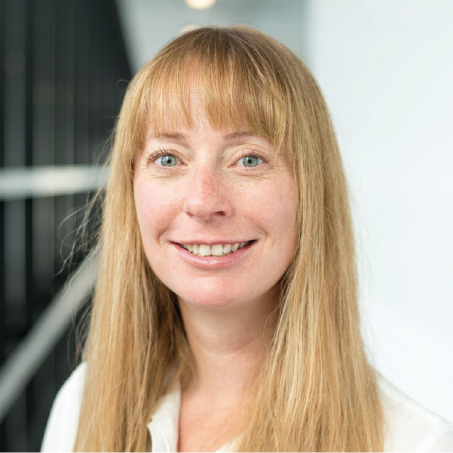
NMIN project involvement:
Collaborator: Lipid Nanoparticle-mediated Immunotherapy for Pseudomyxoma Peritonei
David Wishart
Professor, University of Alberta
Researcher
Dr. Wishart is a Professor in the Departments of Biological Sciences and Computing Science at the University of Alberta. He is also a co-director of the Nanobiology program at the NRC's National Institute for Nanotechnology (NINT).
His research interests span many areas including structural biology, bioinformatics, prion biology, nanobiology and metabolomics. From 2006-2009, Dr. Wishart led the "Human Metabolome Project" (HMP), a multi-university, multi-investigator project that catalogued all of the known metabolites in human tissues and biofluids. Using advanced methods in NMR spectroscopy, mass spectrometry, multi-dimensional chromatography and machine learning Dr. Wishart and his colleagues identified or found evidence for more than 8500 endogenous metabolites.
The methods and ideas developed for the HMP have helped lay the foundation for a number of clinical metabolomics projects currently being pursued in his lab. These include studies of several cancer biomarkers, identifying organ transplant biomarkers, exploring wound healing mechanisms, identifying early biomarkers of prion and prion-like diseases, and investigating biomarkers of common diseases in cows.
Dr. Wishart has active research programs in structural biology, nanobiology, synthetic biology, prion biology, bioinformatics and metabolomics. Some of his lab's most significant contributions have been in the area of protein chemical shift analysis and the prediction of protein structure.
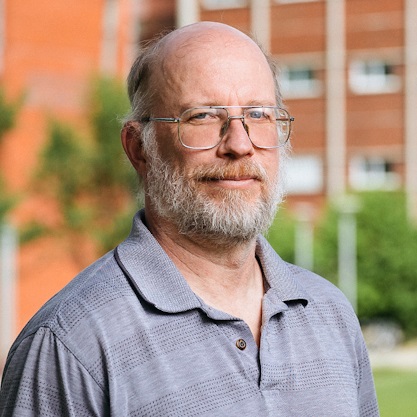
NMIN project involvement:
PI: Nanoparticle-enhanced,impedance-based biosensor development for cancer diagnostics
Peter Zandstra
Professor, University of British Columbia
Collaborator
Dr. Zandstra is Professor & Director of School of Biomedical Engineering and Director of the Michael Smith Laboratories at the University of British Columbia. He is also Chief Science Officer of Centre for the Commercialization of Regenerative Medicine (CCRM). He holds an academic appointment as a Professor at the University of Toronto’s Institute of Biomaterials and Biomedical Engineering, and is the Canada Research Chair in Stem Cell Bioengineering.
Dr. Zandstra’s research focuses on understanding how complex communication networks between stem cells and their progeny influence self-renewal and differentiation, and how this information can be applied to the design of novel culture technologies capable of controlling cell fate.
His work integrates engineering and biological approaches and has contributed to the development of clinically and industrially relevant and academically recognized technologies based on the design of bioprocesses for the growth and differentiation of adult and embryonic stem cells. Direct applications of this work include tissue and cellular engineering, gene therapy, and organ transplantation.

NMIN project involvement:
Collaborator: Neutrophil encapsulation platform for targeted drug delivery
Collaborator: GeneCure: Application of lipid nanoparticle technology to gene therapies in a variety of tissues
160 College Street
Toronto, ON
Tel: 416-978-8888
peter.zandstra@utoronto.ca
Website
Gang Zheng
Professor, University of Toronto
Researcher
Dr. Zheng is a Professor in the Department of Medical Biophysics, the Institute of Biomaterials and Biomedical Engineering, and the Leslie Dan Faculty of Pharmacy at the University of Toronto. He is also Associate Research Director of Princess Margaret Cancer Centre, Canada Research Chair in Cancer Nanomedicine (Tier 1), and
Associate Editor of Bioconjugate Chemistry.
Dr. Zheng's research focuses on the development of novel technology platforms for molecular imaging, photodynamic therapy (PDT) and nanomedicine. His lab's main interest is to develop two new drug platforms to combat cancer: 1) light-activated intelligent molecules and 2) nature-inspired theranostic nanomedicine.
Dr. Zheng’s lab discovered porphysome nanotechnology (Nature Materials 2011), named one of the “top 10 cancer breakthroughs of 2011” by the Canadian Cancer Society. His lab also discovered that on exposure to low-frequency ultrasound, porphyrin microbubbles form nanoparticles that possess the same optical and therapeutic properties as the original microbubble, and can be used simultaneously for imaging and drug delivery (Nature Nano 2015).
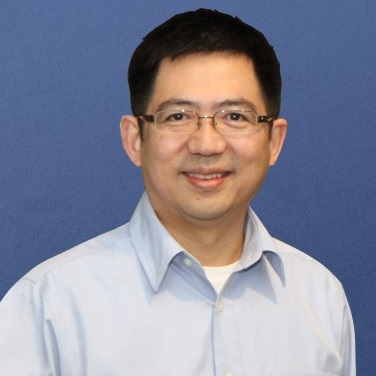
NMIN project involvement:
PI: Customisable metallo-nanotexaphyrins for cancer imaging and therapy
Collaborator: NanoCore: Translational NanoMedicine Formulation and Characterization Core Facility
M5G 1L7
Tel: 416-581-7667 gang.zheng@uhnres.utoronto.ca Website
Yan Zhou
Research Scientist, University of Saskatchewan
Researcher
Dr. Zhou is Adjunct Professor in the Department of Veterinary Microbiolo, and a Scientist and Project Leader (influenza) at the university's Vaccine and Infectious Disease Organization (VIDO).
Her research expertise includes molecular biology of influenza virus, virus induced signal transduction, viral pathogenesis and vaccine development.
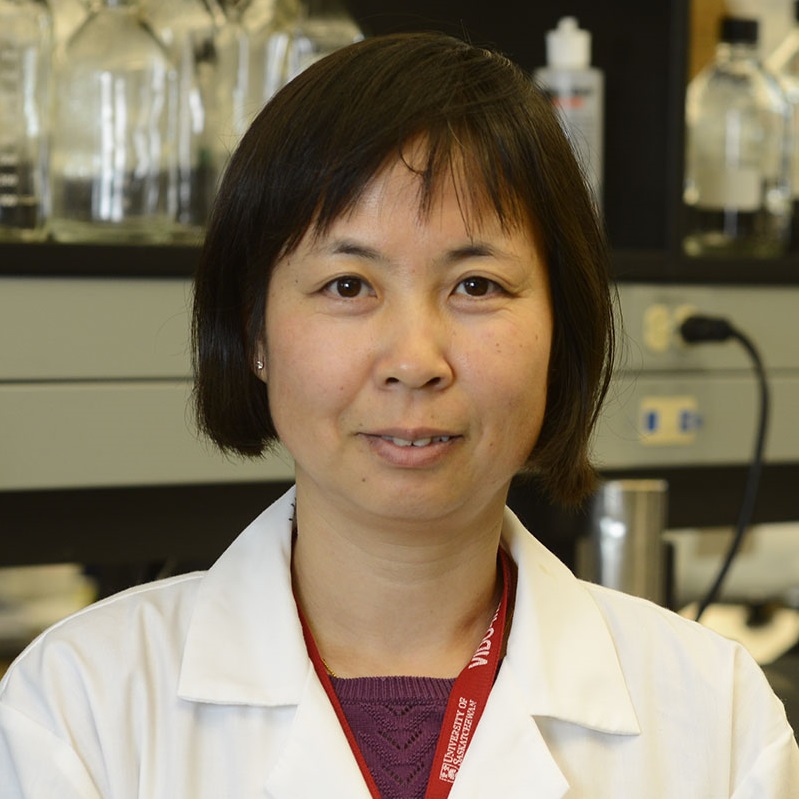
NMIN project involvement:
Co-PI: Lipidic nanoparticle formulation of a triple adjuvant for intranasal vaccines
120 Veterinary Road
Saskatoon, SK, S7N 5E3
Tel: 306-966-7716
yan.zhou@usask.ca
Website
Shan Zou
Sr. Research Officer, National Research Council
Researcher
Dr. Zou is a Senior Research Officer and Team Leader
for Nanoscale Measurement at the Metrology Research Centre of the National Research Council Canada. She is also an Adjunct Professor in the Department of Chemistry at the University of Carleton.
Her research focuses on the development of nanoscale standards and measurement methods that underpin applications of nanoscience; and the development of integrated multimodal techniques for characterization of nanomaterials and quantitative detection of cancer cells and cellular mechanical responses to drug treatments. Recently, she has been working on the reference material development of boron nitride nanotubes and cytotoxicity of nanomaterials.
Dr. Zou has expertise in nanomechanical characterization; cytotoxicity measurements of nanomaterials; and material and surface characterization. She seeks to contribute to a greater understanding of the effects of nanomaterials on the environment and living systems, and to promote the safe and responsible use of nanotechnology tools and nanomaterials.

NMIN project involvement:
Building Sussex, Room 1095
Ottawa, Ontario K1A 0R6
Tel: 613-949-9675
Shan.Zou@nrc-cnrc.gc.ca
Website

